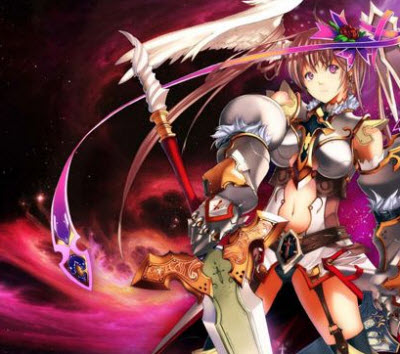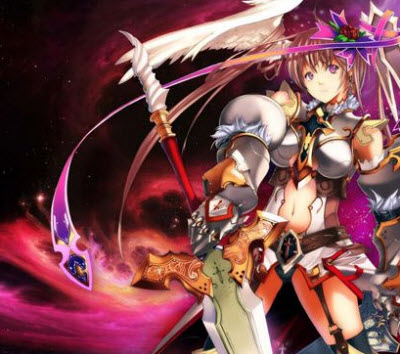 Outspark has quietly built itself a good business importing Asian online games into the U.S. and European markets. Today, it is announcing that it is bringing Luvinia Online, a massively multiplayer online game from China’s Shanda Games, to western gamers.
Outspark has quietly built itself a good business importing Asian online games into the U.S. and European markets. Today, it is announcing that it is bringing Luvinia Online, a massively multiplayer online game from China’s Shanda Games, to western gamers.
Shanda is one of China’s biggest online game companies, so getting the rights to publish Shanda’s fantasy role-playing game in the west is a big deal for San Francisco-based Outspark. And it’s another step in Outspark’s quest to prove that free-to-play massively multiplayer online games will prove as popular in the European and U.S. markets as they are in Asia.
If Outspark does well with this game, it will likely be able to cut similar deals with other publishers. It may also prove that, even in the age of successful Facebook apps, it still makes sense for game companies to create their own online game platform that they can completely control.
It hasn’t been easy. Outspark hired chief executive Owen Mahoney, a former Electronic Arts executive, in September, 2009. He recently gave up the title and Susan Choe, founder of Outspark and its chairman, resumed the role as CEO. She acknowledged that her company’s audience is much smaller than Zynga’s on Facebook. But she believes that her company’s gamers are more loyal and may turn out to be very lucrative in the long run.
The company has around 3 million monthly active users and 6 million registered users. While it hasn’t opted to advertise heavily to gain tens of millions of users, it has built a strong business. Outspark’s games are free to play, which means users can play for free and pay real money for virtual goods such as better weapons or decorations.
Shanda’s Luvinia Online has millions of monthly players. Outspark will take the game and localize it for Western markets, changing the user interface and language as needed. It will then apply its metrics to measure the results and modify the game as necessary. That’s part of the data-driven model that has helped Outspark get industry-leading results, Choe said.
About 9 to 10 percent of the 3 million monthly unique users pay. Of those who pay money, the average revenue per paying user is $50. Those players pay for an average of eight months, which equals a lifetime value per customer of $400. Typically, the users start paying 14 days into the game play. About 80 percent of those are males ages 16 to 30. The average session is a half hour. Choe isn’t disclosing actual revenues, but she said revenues today are double what they were a year ago.
“No one else has metrics like that,” said Choe.
Choe said the company’s focus has been deliberate and she believes that people who are playing games on Facebook will eventually trade up to a more rewarding experience. So they may at some point migrate to games on Outspark.
Choe said that Outspark can control its destiny because it publishes games to its own web site. It isn’t beholden to platform holders such as Facebook, which has clashed with Zynga, Facebook’s largest app maker, over platform tax issues. By contrast, no one stands between Outspark and its audience of gamers.
After 3.5 years of hard work, Choe feels that growth will come. The company has invested in engaging games. It can cross sell the different games to users on the site, so Outspark doesn’t have to advertise heavily. And it is making more casual online games that aren’t as complicated to play as World of Warcraft, the industry leader in online games.
Outspark last year published an online dancing and shopping game from J2M, a game studio in South Korea that Electronic Arts recently acquired. Beyond the traditional game companies, Outspark’s rivals include Asian companies such as Nexon, which has expanded into the U.S. market. Outspark raised $8.3 million in venture funding during the dry month of July, 2009, and has raised $22 million to date. Investors include DCM, Syncom Venture Partners, SBI Investment, Mille Plateau, Tencent and Altos Ventures.



